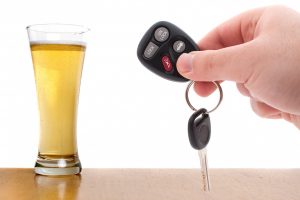Sins of the Fathers: Is the Tendency Toward DUI an Inherited Trait?
 In June, we celebrate Father’s Day—a day set aside for appreciating what fathers have done for us, the example they set, etc. But like everyone else, fathers have feet of clay, and sometimes they don’t always set the best example. Sometimes our fathers fail us, and sometimes we as fathers fail our children. So let’s explore a rather loaded question: If a father has a proclivity toward repeated DUI offenses, does that mean the children will, as well?
In June, we celebrate Father’s Day—a day set aside for appreciating what fathers have done for us, the example they set, etc. But like everyone else, fathers have feet of clay, and sometimes they don’t always set the best example. Sometimes our fathers fail us, and sometimes we as fathers fail our children. So let’s explore a rather loaded question: If a father has a proclivity toward repeated DUI offenses, does that mean the children will, as well?
The answers here can be complex because many dynamics are at work in the relationship between parents and children—including genetics, parents’ example and the overall way we are raised. Let’s begin by stating that when we view DUI as a crime, we’d be hard pressed to say that any criminal activity is an inherited trait. Our mistakes are our own, and we can’t blame them on our parents. However, many underlying factors can make people more prone to making bad choices, including the unfortunate decision to get behind the wheel while under the influence. If we understand some of these underlying factors, we may be able to compensate and make better choices. Let’s look at some of these dynamics.
Addiction and Genetics
DUI in itself isn’t inheritable, but the potentially addictive forces behind DUI very well may be. While we can’t place definitive statistics behind it, recovery programs frequently cite DUI as a warning sign of an alcohol addiction on the basis that one-third of all DUI convictions are repeat offenders. The legal systems in most states also support this view, and their judges (including here in California) frequently mandate treatment for the defendant before restoring driving privileges, or as an alternative to jail time. Research has consistently shown that genetics play a significant role whether a person is predisposed toward alcoholism, and the National Institute of Alcohol Abuse and Alcoholism says genetics may account for up to half the risk of developing alcoholism.
The point to this line of thinking is that if you find yourself a repeat DUI offender, there’s at least a reasonable chance that addiction is driving that behavior—and if so, your inclination toward addiction may be inherited, even if your DUI arrests are not.
Behavioral/Emotional Disorders
Addiction may not be the only driving force behind repeat DUIs. Sometimes DUI arrests are just one symptom of a larger pattern of compulsive, destructive or self-sabotaging behavior, often triggered by emotional and/or mental health issues. Behavior disorders such as obsessive-compulsive disorder (OCD), attention deficit hyperactivity disorder (ADHD), borderline personality disorder (BPD) and may stem from a combination of factors, including genetics, trauma, abuse and negative home environments. Again, from this vantage point, we don’t inherit the tendency toward DUI, but the triggering mechanisms behind DUI could stem from genetics, childhood environments or a combination of both.
Learned Behaviors
Have you ever had the experience of looking at how you are responding to a certain situation, and having the epiphany moment: “Oh my gosh…I’ve became my father!”? Even after promising ourselves we will never do [fill in the blank] like our parents did, we are frequently surprised (dismayed?) at how much we remind ourselves of our parents. This phenomenon can also find its way into more serious negative behaviors, including driving under the influence. When we’re young, our parents naturally serve as our role models, whether or not they should be. If we grow up in a household where reckless behavior is normative—and we don’t make purposeful efforts to reverse those tendencies—we may well find ourselves repeating those reckless behaviors subconsciously.
We can find plenty of science to back these ideas. Psychologists regularly point to our natural tendency to re-create our family of origin in our own relationships, especially when trauma or dysfunction are involved. We don’t do it intentionally, but we do it subconsciously, whether due to the sheer familiarity of it or perhaps as an attempt to go back and fix what went wrong in the past. Many of these complex forces can play into the destructive choices that can eventually lead to DUI.
Getting Past the Blame Game
We should emphasize at this point that by exploring these ideas, we’re not suggesting that anyone can absolve themselves of responsibility for a DUI offense by blaming their actions on their genes or upbringing. To repeat, we can’t blame our parents for our own choices—and when it comes to DUI, the courts certainly won’t see it that way. However, by identifying some of the underlying issues, inherited or otherwise, that make us more likely to make bad choices, we can take steps to deal with those issues and even set up safeguards, if necessary, to keep us from making them.
Taking Responsibility
Sometimes a DUI arrest happens due to a misunderstanding, or even due to an officer making the wrong call. Sometimes it happens due to a simple lapse in judgment. But if you become a repeat DUI offender, you may be dealing with other issues that stem from genetics, your past or a combination of the two. Regardless of the cause, the responsible choice is to seek help, if necessary, to prevent recurrences. Every instance of DUI puts your life and the lives of others at risk.
If you need legal guidance and representation for a DUI charge, we can help. Call our offices for a free evaluation.
 Los Angeles DUI Attorney Blog
Los Angeles DUI Attorney Blog

